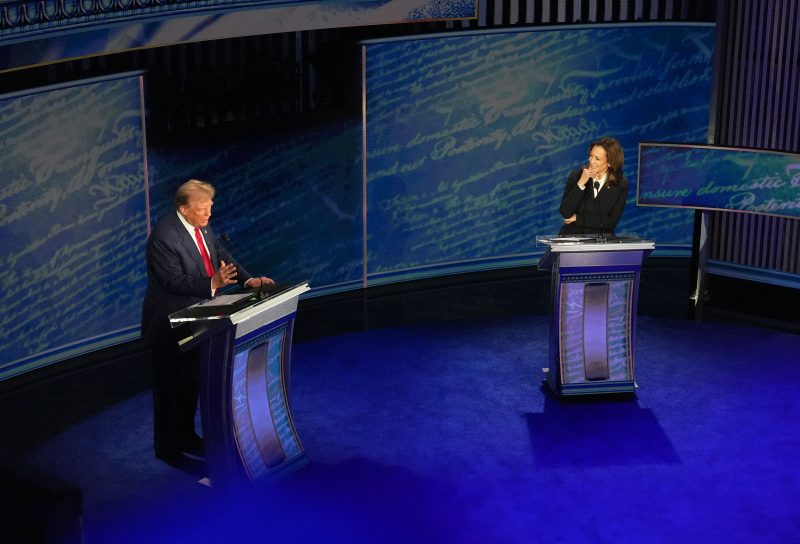Analyzing the Foreign Policy Stance of Kamala Harris and Donald Trump during the Debate
Harris and Trump both addressed crucial foreign policy questions during the recent debate, offering contrasting perspectives on various international issues. Harris, aiming to highlight diplomacy and multilateral cooperation, emphasized the importance of alliances and criticizing Trump’s approach. On the other hand, Trump reiterated his ‘America First’ policy, accentuating bilateral agreements and focusing on domestic interests.
In response to questions about China, Harris expressed the need for a firm yet strategic approach, advocating for a balance between challenging China’s unfair trade practices and engaging in constructive dialogue. She criticized Trump’s trade war with China, suggesting that it damaged American farmers and consumers. In contrast, Trump defended his tough stance on China, underscoring the necessity of confronting China’s trade violations and intellectual property theft.
Regarding North Korea, Harris stressed the significance of denuclearization and advocated for a comprehensive diplomatic strategy involving key regional allies. She questioned the effectiveness of Trump’s personal relationship with Kim Jong-un, pointing out the lack of tangible progress in denuclearization talks. Trump, however, defended his engagement with North Korea, highlighting his efforts to de-escalate tension and secure the return of American prisoners.
On the issue of Russia, Harris expressed concerns about Russian interference in U.S. elections and called for a robust response to counter malign Russian activities. She criticized Trump for downplaying Russian election interference and failing to hold Russia accountable for its actions. In response, Trump defended his administration’s policies toward Russia, emphasizing his personal rapport with Vladimir Putin and highlighting areas of cooperation such as arms control agreements.
When discussing the Iran nuclear deal, Harris emphasized the importance of preserving diplomatic agreements and expressed willingness to re-engage with Iran under certain conditions. She criticized Trump’s decision to withdraw from the Iran nuclear deal, arguing that it undermined international trust and stability. In contrast, Trump defended his decision to exit the agreement, citing concerns about Iran’s compliance and its destabilizing activities in the region.
Overall, the foreign policy perspectives of Harris and Trump presented during the debate reflect their contrasting approaches to international relations. While Harris emphasized diplomacy, cooperation, and a multilateral approach to global challenges, Trump underscored a more unilateral, transactional vision centered on advancing American interests. The upcoming election will likely pivot on these competing foreign policy visions, shaping the future direction of U.S. engagement with the world.






















